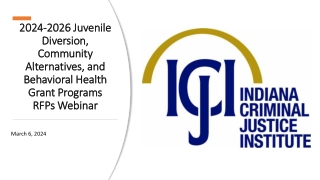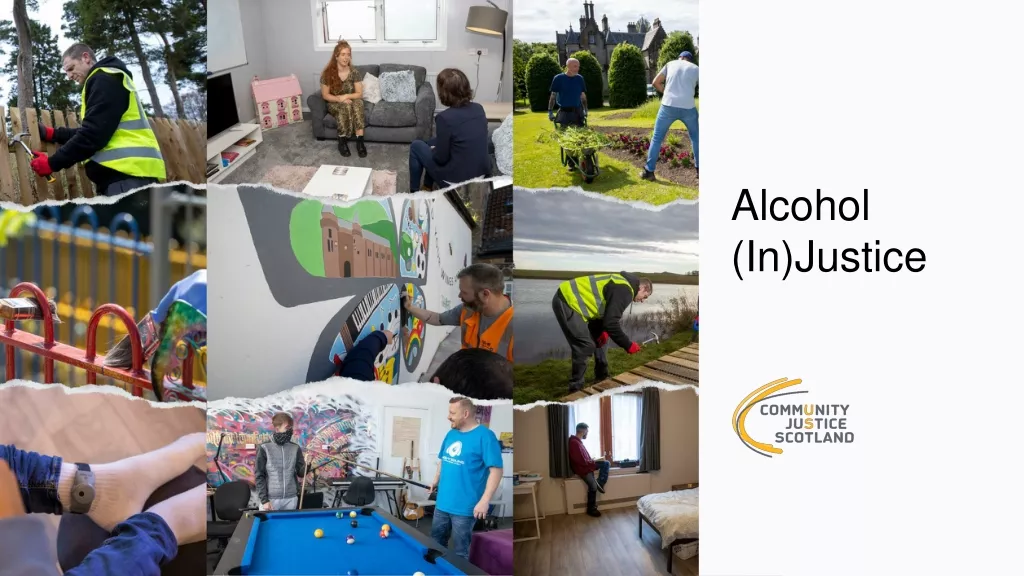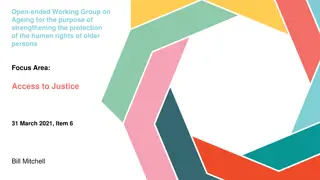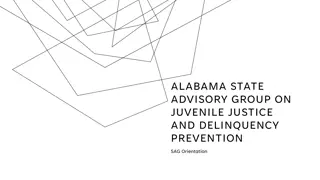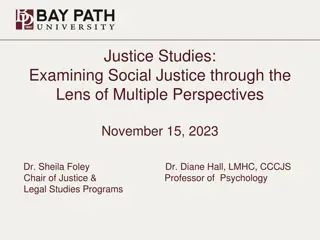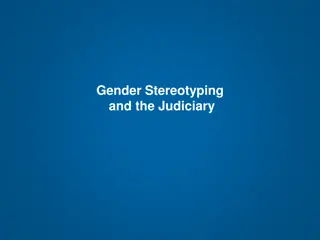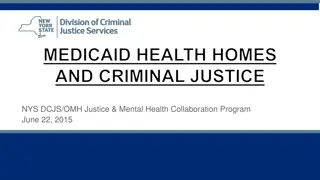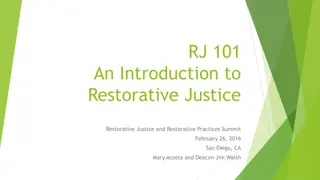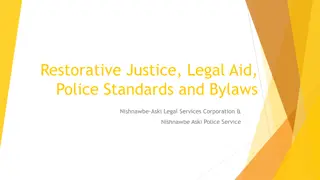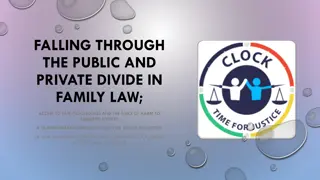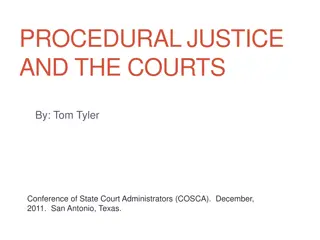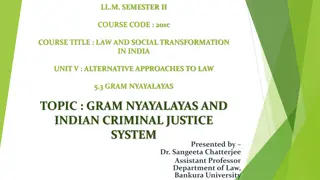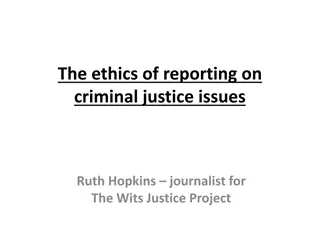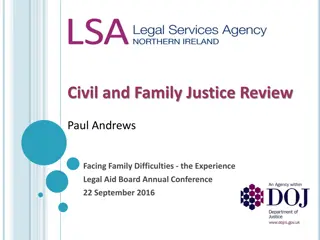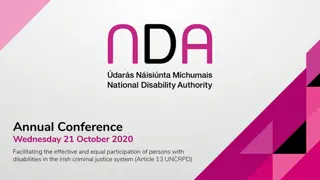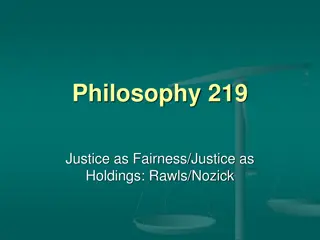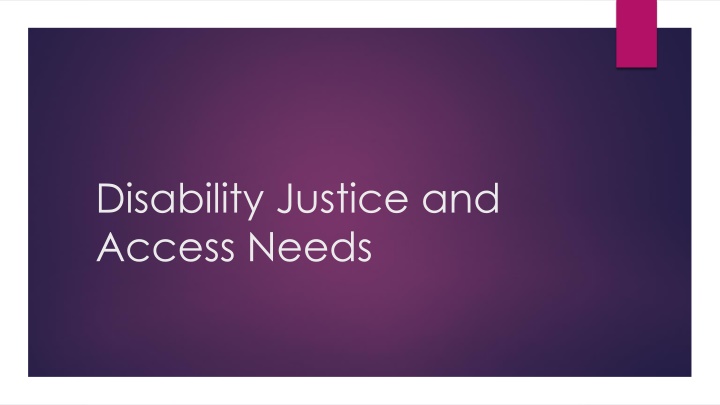
Disability Justice and Access: A Path to Equity and Liberation
Explore the intersectionality of disability justice, anti-capitalism, and cross-movement solidarity. Learn about meeting access needs, accommodating diverse learning styles, and fostering collective liberation in educational spaces.
Uploaded on | 1 Views
Download Presentation

Please find below an Image/Link to download the presentation.
The content on the website is provided AS IS for your information and personal use only. It may not be sold, licensed, or shared on other websites without obtaining consent from the author. If you encounter any issues during the download, it is possible that the publisher has removed the file from their server.
You are allowed to download the files provided on this website for personal or commercial use, subject to the condition that they are used lawfully. All files are the property of their respective owners.
The content on the website is provided AS IS for your information and personal use only. It may not be sold, licensed, or shared on other websites without obtaining consent from the author.
E N D
Presentation Transcript
Disability Justice and Access Needs
Intersectionality Leadership of those most impacted Disability Justice Anti-capitalism Cross-movement Solidarity Commitment to Cross-movement Solidarity Recognizing Wholeness 10 Principles (Sins Invalid) Sustainability Interdependence Collective Access Collective Liberation
Disabled people are flawed versions of normal humans Access under the Medical Provide accommodations to make up for individual flaws Accommodations: extra time, distraction free, different modalities, alternative assignments, ASL interpretation, etc. Model
Traditional Syllabus Statement "If you are a student with a disability and believe you will need accommodations for this class, it is your responsibility to contact [Student Disability Resource Center Name] at (555) 555- 5555. To avoid any delay in the receipt of your accommodations, you should contact [Student Disability Resource Center Name]as soon as possible. Please note that accommodations are not retroactive, and that I cannot provide accommodations based upon disability until I have received an accommodation letter from [Student Disability Resource Center Name]. Your cooperation is appreciated."
All people have access needs and meeting them is a collective responsibility. Access in Disability Justice Access is a prerequisite for equity, justice, and liberation. Types of access needs: ergonomics, participation formats, bathrooms, food, religious needs, childcare, etc.
Disability Justice Syllabus Statement (Lydia X. Z. Brown) I am committed to creating a learning space where everyone can participate as fully as possible. I strive to provide information and resources in multiple formats (text, visuals, audio, silent work, group work, lecture, conversation, etc.) to enable more access possibilities for every student. I recognize that there are many reasons students may need to adjust their pace, style, or method of learning, including but not limited to disability, temporary or ongoing personal life circumstances, unexpected emergencies, or other learning differences. Available at: https://autistichoya.net/resources/syllabus-language/
Disability Justice Syllabus Statement (Part 2) All students are always allowed to use the bathroom, get drinks of water, or take breaks outside the classroom at any time without needing to ask permission. (Seriously, no one wants to witness anyone else urinate or die of dehydration.) If you are responsible for childcare, you are welcome to bring your children to class with you, and they do not need to be shushed. All students are also always allowed to use technology and devices in the classroom at any time, including cell phones. My only requests are that (a) you set your devices to silent or vibrate-only during class time; (b) you don t intentionally open any visuals that contain sudden or rapid flashing, since these can cause potentially fatal seizures, migraines, and sensory overload; and (c) if you plan or expect to use a device for a non-traditionally academic purpose, you sit on the sides or back of the room to reduce chances of accidentally distracting someone else. (You can step outside to take calls if needed.) .
Disability Justice Syllabus Statement (Part 3) All students are also always allowed to ask for extensions or alternative assignments for any assignment, including adjustments to the final paper (but you still have to write one). I will pretty much grant any and all extension requests, and you don t need to give details for why you need an extension. If you ask for one, I believe you that there is some reason that you need one. Usually, I will ask you when you think would be fair and feasible for you to get it done, and that will become your new deadline to turn it in. If you have any access needs that I can better support by changing any aspect of my teaching (including class discussions) or the way I have handled assignments/readings, you are welcome and encouraged to let me know in public or in private how I can better support your access needs.
Disability Justice Syllabus Statement (Part 4) Disabled students/students with disabilities may also formally register with the office responsible for disabled student support services, which is the official process for receiving reasonable accommodations in the classroom. You need not have a specific reason or diagnosis to talk to me about your access needs; everyone deserves to learn in the way that makes the most sense for them at any point in time. Tufts official policy is this: Reasonable accommodations are afforded to any student who is registered with the Student Accessibility Services Office, who has been deemed eligible by the Director of the Student Accessibility Services in accordance with Tufts polices, and in accordance with State and Federal regulations. Accommodations must be requested by the student, and be pertinent to the student s documented disability, and must not substantially alter the educational program, intent, process, nor be an administrative burden to execute for the parties involved.
Another Way to Think About Access
Perception of Access Nothing about us without us Michael Masutha & William Rowland, 1993 South Africa
Takeaways All people have access needs and meeting them is a collective responsibility. It is critical to ensure that we don t fall into the perception of access Access is a prerequisite for equity, justice, and liberation.


